The days of building generic warehouses at motorway junctions are passing.
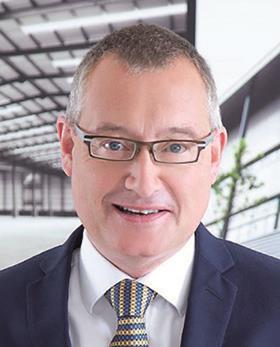
Occupiers are demanding far more from the design and development of logistics buildings - facilities specified to ever-higher standards to truly match the requirements of today’s new industries, businesses and technologies. Developers and investors working in this sector need an intelligent grasp of both cost and functionality based on a granular knowledge of business operations and requirements.
There are three areas of new business for the industrial and logistics property market that stand out: life sciences and pharmaceuticals; ecommerce; and new manufacturing. Life sciences and pharmaceuticals is, perhaps, the area in which the changes in the logistics and industrial property sector have been most noticeable. Those operating in the sector need to replace outdated facilities with buildings that comply with the latest requirements for storage and distribution of drugs. This means clean, clinical, temperature-controlled spaces that are safe and secure.
As the healthcare industry also embraces e-tailing, the big companies require their very own logistics centres, from which they can dispatch drugs direct to patients. This is already happening outside the UK, suggesting that the days of visiting your local chemist for your prescription may well come to an end in the not-too-distant future. Your doctor may simply issue your prescription to the drug company and it will be dispatched directly to you. That, coupled with an ageing population and rising demand for new drugs, will create the need for even more of these new pharma warehouse facilities.
Let’s take one example - diabetes. There has been an unfortunate surge in people suffering from this disease, in particular type-two diabetes. There are already four million sufferers in the UK, and by 2020 it is expected that almost a fifth of the population will require drugs to combat it. The pharmaceutical industry has never had greater need for cutting-edge buildings to produce and distribute its products, and this presents a huge opportunity for companies such as Verdion.
As an example, we recently developed a facility in Denmark for Novo Nordisk, one of the world’s largest healthcare and pharmaceutical companies, with temperature-controlled spaces, security systems, clean rooms and high-grade air tightness. If drugs are not maintained at the right temperatures, in the right conditions, then millions of patients could be put at risk.
Huge challenge
Jim Mellon, one of the UK’s most respected investors, sets out the enormous opportunities for new treatments and drugs in his seminal book Cracking the Code. The next 20 years will see a correspondingly seismic shift in healthcare and health ‘lifestyle’ products and services and those working in the logistics sector must have the wherewithal to provide the right environments and distribution facilities for the pharmaceutical and biotech companies leading this wave of new healthcare invention. It will be a huge challenge across the globe to deal with the requirements of the healthcare industry in the future, and the property industry will have a key role to play.
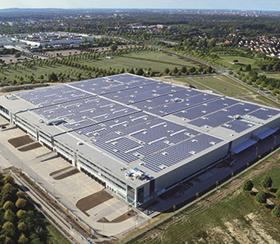
Ecommerce is also a sector expected to see continuing growth and reconfiguration. I can assure you this is about far more than home delivery. The sector has broadened hugely in recent years and its demands now extend way beyond simple storage facilities.
A couple of years ago, Verdion completed a 640,000 sq ft warehouse in Hanover for Avarto Bertlesmann (pictured). This highly sophisticated logistics facility is the base for delivering fashion items for Esprit throughout Europe. It required the mechanical systems and computer power to deal with more than 240,000 items per day. A generic warehouse simply would not be fit for purpose.
Third-party logistics (3PL) operators, such as Avarto, DHL and DPS, are increasingly operating the entire online offering for the companies they are distributing products for. For instance, while a fashion company may have its own website telling customers about its product range, offers and where to find a physical store, when you click the button that takes you to the online store, you are actually being transferred to a 3PL. That 3PL deals with the entire online process, orders, customer data and, of course, the physical deliveries and the returns. E-tailing is, like the pharmaceutical sector, a massive growth area - one that offers an opportunity to those developers and investors who can adapt to these new demands.
Milk production
We see opportunity is coming too from new manufacturing industries. Verdion recently worked with a global Swedish dairy business that is at the cutting edge of robot technologies for milk production, reinventing milking systems that are both voluntary and personalised to each individual cow. The group requires space fit for the cleanest, most efficient pharmaceutical company. It is achieving a greater good too, reinventing animal welfare by building robotic ‘voluntary’ milking machines that remember every cow, making the process as comfortable as possible for the animal. All this to create happy and healthy cows - which make for better milk production.
Future warehousing for use by the newer technologies means high-end, highly energy efficient and welcoming places. The future for the industrial sector is now, and those in the property industry wanting to invest in the next generation of logistics facilities need to sit up and deliver what the modern user needs.
Michael Hughes, CEO, Verdion
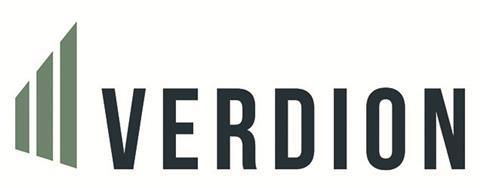
About Verdion
Verdion is a leading real estate investor and developer, with a specialist focus on logistics warehousing. It provides new buildings for Europe’s leading logistics, e-tailing and industrial companies on a full design and financed basis. The company acquires and controls large areas of strategic development land to meet the needs of its client partners.
Verdion’s 10m sq ft development pipeline includes: iPort, the £500m, 6m sq ft logistics project in Doncaster, south Yorkshire, which will provide a best-in-class rail intermodal facility; and Verdion ExpoPark in Hanover, Germany, with Phase 1 of 650,000 sq ft built and leased to Avarto Bertelsmann and Phase 2 of 452,000 sq ft now available.
Verdion was founded by Michael Hughes in January 2010. Headquartered in London, Verdion also has offices in Düsseldorf, Germany.


























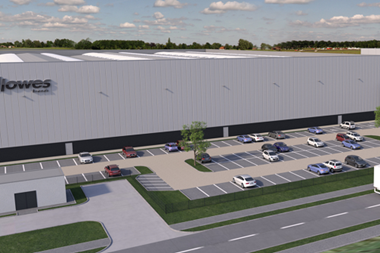
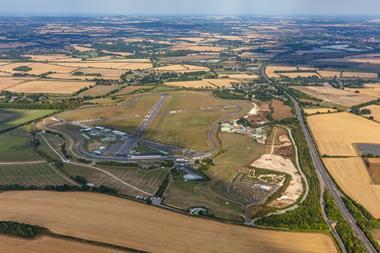
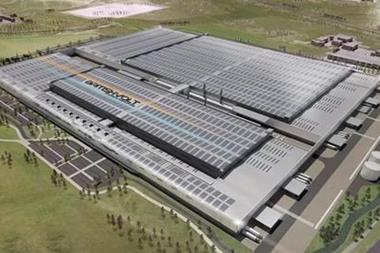
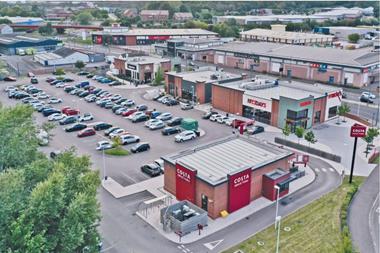

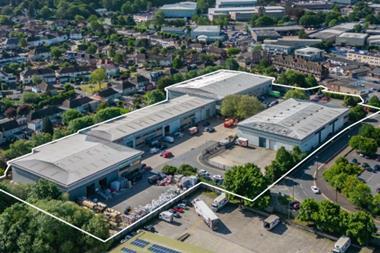
No comments yet